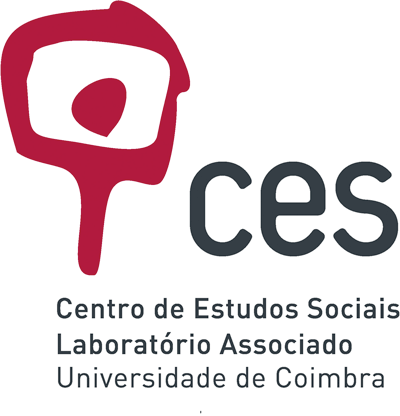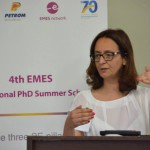Since its foundation, in 1978, CES has been conducting research with and for an inclusive, innovative and reflexive society by promoting creative critical approaches in the face of some of the most urging challenges of contemporary societies. CES was classified as “Excellent” in the last international evaluation process carried out by the Portuguese Foundation for Science and Technology. Its mission additionally involves developing training in advanced studies, namely the doctoral and post-doctoral programmes, the participation in national and foreign interdisciplinary and transdisciplinary research networks, the development of ongoing training activities in professional and academic fields, the promotion and dissemination of scientific culture and the organisation of cultural activities.
Five main thematic lines structure these activities:
- (Semi)peripheral Capitalism: Crises and Alternatives
Brings together research on the main socio-economic transformations of capitalist societies over the last half century, on the position of vulnerability of the peripheries and semi-peripheries and on the unequal impacts that crises trigger.
- Democracy, Justice and Human Rights
Examines the socio-legal, cultural and political frameworks that define power relations in contemporary societies with special attention to the emancipatory potential of social struggles mobilized in the name of democracy, justice and human rights.
- Europe and the Global South: heritages and dialogues
This line analyses the articulations between Europe and the Global South, at various scales, in the framework of an increasingly multipolar world, marked by persistent legacies and multiple forms of violence.
- Risk(s), Ecologies, Health
Promotes an integrated approach to risks and threats and their impacts on the ecosystem and human and non-human well-being, building a dialogue with socially robust approaches and interventions drawn from responsible research and innovation tools and practices.
- Urban Cultures, Sociabilities and Participation
Analyses and acts upon urban cultures and the modes of organisation and regulation of social, cultural, political and economic life, taking the city as a privileged territory for active participation and for the construction of more socially just intervention strategies.
CES’s attention to citizens’ and societies’ collective action has been one of the backbones of its research, education and extension activities. Several research projects have been focusing on or addressing social innovation (Atlantic Social Lab[1]), social enterprises and sustainable business models (TIMES[2], IN-SITU[3]), and the solidarity economy (URBINAT[4], TRANS-LIGHTHOUSES[5], BIOTraces[6]), including intersections between the SE field and the fields of culture and arts and climate change.
ECOSOL – Economia Solidária[7], is one of its transversal groups, bringing together students and researchers associated with CES-UC or other partner institutions, interested in advancing knowledge on different issues of the Solidarity Economy. CES researchers are also involved in post-graduate training in the fields of social economy and social innovation and entrepreneurship and PhD students are developing their thesis in areas such as social innovation, social incubators, women social entrepreneurship, amongst others.
[1] https://www.ces.uc.pt/en/investigacao/projetos-de-investigacao/projetos-financiados/atlantic-social-lab
[2] https://www.ces.uc.pt/en/investigacao/projetos-de-investigacao/projetos-financiados/times
[3] https://www.ces.uc.pt/en/investigacao/projetos-de-investigacao/projetos-financiados/in-situ
[4] https://www.ces.uc.pt/en/investigacao/projetos-de-investigacao/projetos-financiados/urbinat
[5] https://www.ces.uc.pt/en/investigacao/projetos-de-investigacao/projetos-financiados/trans-lighthouses
[6] https://www.ces.uc.pt/en/investigacao/projetos-de-investigacao/projetos-financiados/biotraces






